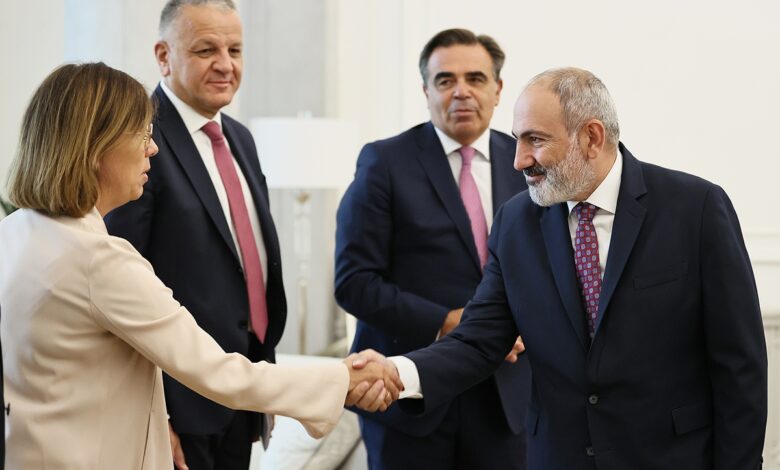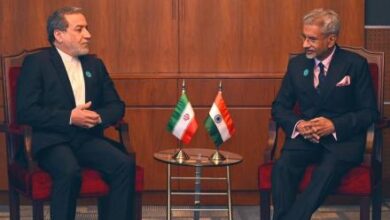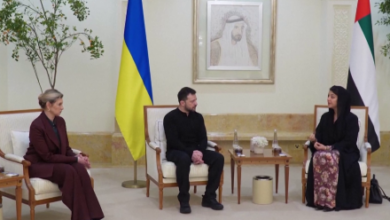Armenia and EU kickstart visa liberalization process

EU aiming to “sustain” Yerevan’s reform agenda.
The European Union has commenced its “dialogue” with Armenia on enabling visa-free travel by Armenian citizens to the EU. The announcement comes amid reports of growing difficulties at present for Armenians in obtaining visas and gaining entry to Schengen Area countries.
The negotiations are widely expected to take years to complete, and will require Armenia to implement far-reaching, liberalizing reforms to satisfy EU criteria. Ultimately, any visa liberalization deal will require approval from the EU Council and the European Parliament.
Over the last year, Armenia has made a geopolitical pivot away from Russia toward the West, fueled by widespread disillusionment with the Kremlin over its failure to deliver on security commitments during the Nagorno-Karabakh conflict, which culminated with Azerbaijan’s reconquest of the territory.
Armenian Prime Minister Nikol Pashinyan appears intent on positioning the country for an EU membership bid. On September 9, he welcomed an EU delegation in Yerevan led by Margaritis Schinas, an EU Commission vice president and Commissioner for Promoting the European Way of Life. Pashinyan noted that public discussion in Armenia about a potential accession bid was growing.
“This [EU membership] is not a simple issue, but it has become part of the Armenian political agenda, so it is necessary to address this topic in detail,” the Armenpress news agency quoted the prime minister as saying. “In this regard, it will be important to consider the observations and advice of our EU partners.”
In a statement, the EU said its decision to open discussions on visa-free travel was intended to “sustain ongoing efforts to support Armenia’s comprehensive reform agenda.”
The EU added that the new discussions “build on the successful implementation of the EU-Armenia Visa Facilitation and Readmission Agreements, which have simplified travel procedures for many Armenian citizens since 1 January 2014.”
Those agreements simplified the process for obtaining visas to travel to EU member states. But in recent years, since Russia’s unprovoked invasion of Ukraine in 2022, EU consular sections have been overwhelmed by the swell of visa applications submitted by Armenians, resulting a rising backlog and lengthening delays in issuing travel documents.
The challenges facing EU-bound Armenian travelers extend beyond the visa application process. Even after obtaining a Schengen visa, some Armenians report experiencing difficulties upon arrival in gaining entry to the country for which they have a visa. Bulgaria, which recently joined the Schengen Zone, has been singled out for its toughness on admitting Armenians. In recent months, several Armenian citizens who attempted to enter Bulgaria with valid visas have been denied entry. Reports suggest that Bulgarian border authorities have subjected a significant number of Armenian travelers to lengthy and invasive questioning, prompting complaints that visa rules are being arbitrarily applied.
EU officials indicate that some Armenian citizens are abusing visa regimes by altering their travel plans in an unauthorized manner, effectively obtaining visas under misleading pretenses. Part of the problem, the Armenian Foreign Ministry acknowledges, stems from the fact that some Armenians obtain single-entry visas for one country but then cross borders into other Schengen nations. This issue stands to complicate the visa-liberalization dialogue amid concerns in many EU member states about immigration and border security.
Meanwhile, ethnic Armenians from Nagorno-Karabakh are facing major obstacle when trying to obtain visas for EU countries, as their passports – bearing the code “070” – are often rejected by consular authorities. These passports are categorized as travel documents rather than certificates of Armenian citizenship and are deemed insufficient for obtaining an EU visa. Refugee certificates that Karabakh Armenians possess are likewise not recognized as sufficient for visa-processing purposes.
Source:Eurasianet



